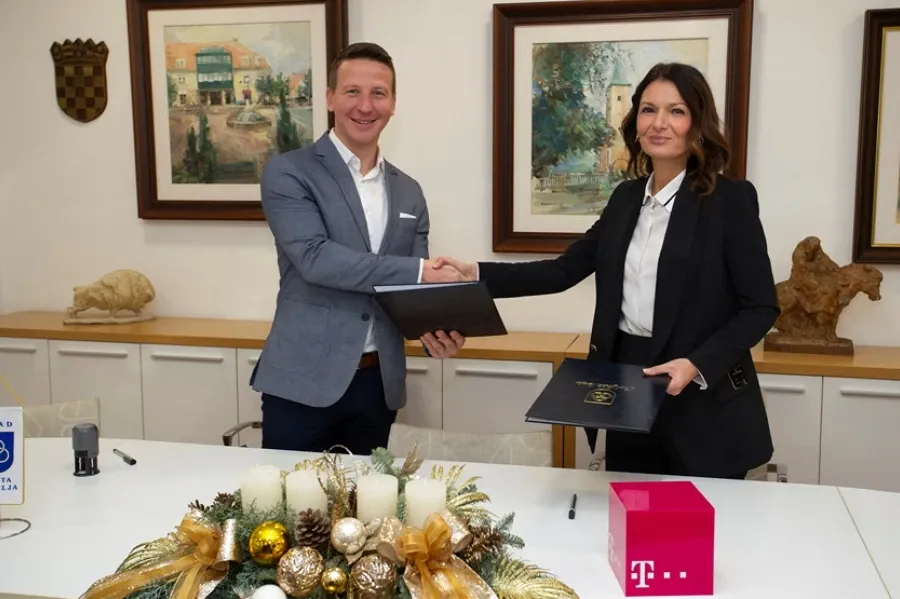CES 2026: Samsung To Operate a Standalone Exhibition Hall
Samsung announced that it will present a new exhibition paradigm with The First Look at CES 2026.

Hrvatski Telekom and the City of Sveta Nedelja signed an agreement on the research and development pilot project for smart public lighting. It is a solution that can work on all types of network technologies, including 3G, 4G, 5G, NB IoT and is applicable to all types of public lighting. It will significantly contribute to energy efficiency of the City and quality of life, security of citizens and reduction of light pollution.
With the implementation of this project, the public lighting poles in Sveta Nedelja will get new functions, i.e., they will become "smart" and it will be possible to control and monitor the lamp remotely wirelessly. The new functions will include monitoring basic weather conditions, which include temperature, humidity, pressure, and UV radiation, monitoring air quality, measuring energy indicators of the lamp, while some of the pillars will have the function of detecting pedestrian passage and measuring traffic noise.
"This is the first such project in Croatia. Hardware is installed on public lighting poles, which is not intended only for the control and monitoring of lamps. Sveta Nedelja, which was one of the first cities in Croatia to introduce a 5G network, has great ambition and a clear vision of development. The implementation of a smart lighting project is a good example of how we can contribute to digitalization and transformation of the city and better quality of life. With quality fiber-optic infrastructure, 5G network and developed NB IoT network from which both public and private sectors benefit, opportunities for further development of smart solutions and smart cities are almost limitless. Sveta Nedelja can serve as a model,“ said Marijana Bačić, VP for Corporate Sales and ICT Services at Hrvatski Telekom.
HT will provide the necessary hardware, software and connection service for this project, and the City of Sveta Nedelja will provide the use of public lighting infrastructure and ensure the installation of control and communication modules on public lighting. The pilot is planned to take six months. During that time, the expert team will analyze data and system operation and build knowledge with the aim of optimizing solutions and providing better services to both citizens and the City.